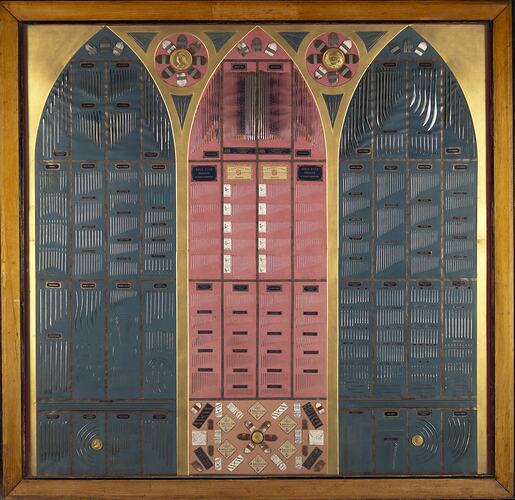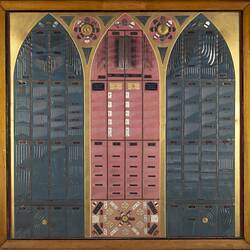Robert Smith Bartleet esq. (?-1901) was the second generation head of William Bartleet and Sons, a needle and fishing tackle manufacturer in Redditch that had been established by Bartleet's grandfather William Bartleet in 1750.
Robert Bartleet was a Justice of the Peace and Deputy Lieutenant for the County of Worcester, and had also been Captain in command of the 17th Worcestershire Rifle Volunteers.
Bartleet was a very successful businessman. During the needle-manufacturing boom of the 19th century, he took the company that had been forged by his father and grandfather to great industrial supremacy. William Bartleet and Sons rose to be one of the most powerful and internationally famous needle manufacturers of the British Empire.
Bartleet lived in the town of Redditch in his stately home 'The Shrubbery', which was located on Prospect Hill beside the immense factory that housed his family business. Prospect Hill overlooked the town of Redditch and the beautiful Abbey Meadows, in the Valley of the Arrow, where the medieval priory Bordesley Abbey had once stood before its dissolution in 1538.
Robert Bartleet was fiercely proud of the illustrious medieval heritage of Redditch. He fashioned his business ethics and philosophy around the good deeds and practices of the Cistercian monks of Bordesley Abbey. The industrious zeal of the monks had elevated the isolated Valley of the Arrow to wealth and prominence in Medieval England, and at the time of the Dissolution, Bordesley Abbey was the fifth wealthiest monastery in Great Britain.
For Bartleet industry and morality were one and the same. The talented industrialist was a noted philanthropist and highly regarded civic leader in Redditch. Benevolent Bartleet used his wealth to improve the lifestyle and living conditions for the people of Redditch. He generously funded the building and sympathetic restoration and refurbishment of civic monuments, schools and churches. He delighted in being able to provide modern wonders for the citizens of Redditch, installing hidden heating systems in the churches and providing a fountain for the village green that 'plumed with civic pride'.
Bartleet saw Redditch as an Industrial Utopia. The wealth generated by the needle manufacturing industry had resurrected the town of Redditch that for many years after the Dissolution of the Monasteries had languished in poverty and obscurity. To highlight the beneficial impact of industry in the rebuilding of the community of Redditch, Bartleet commissioned James Woodward to write and illustrate a history of Bordesley Abbey. In this book, Woodward reconstructs the Abbey, providing detailed drawings of the buildings and architectural details, together with whimsical scenes of the idyllic surrounding countryside.
To further draw the parallel between Medieval and Modern day Redditch, Bartleet commissioned Woodward to make studies of the flourishing industrial town with its technological marvels. These images compare favourably with the bucolic views of Medieval Redditch, and Bartleet proudly displayed them in his home. In excavations Bartleet made on the ruin of Bordesley Abbey, he found many fine relics including beautiful hand made clay tiles. These were placed on the hearth of his fireplace, and also decorated the entrance way of the newly built Church of St. Stephens. The sensitive placement of the medieval tiles in the brand new church highlights how Bartleet fostered the important link between the ancient and modern age of Redditch.
This proud celebration of Redditch's history is also evident in the heraldic emblems and decorative modes of display utilised by Bartleet to advertise and enhance his company image. The High Gothic trade needle display circa 1887, consisting of technologically perfect needles displayed against an elaborate medieval setting, emphasises the link between the prosperity of the industrial town of Redditch and its wealth of glorious medieval heritage.
In an age of enlightenment, when whatever was made was destined for posterity, there lived a highly educated and cultured man with a great passion for local history and antiquities, who took a family company and spearheaded it to world dominance in needle manufacture: he was Robert Smith Bartleet esq.
More Information
-
Keywords
-
Authors
-
Article types

